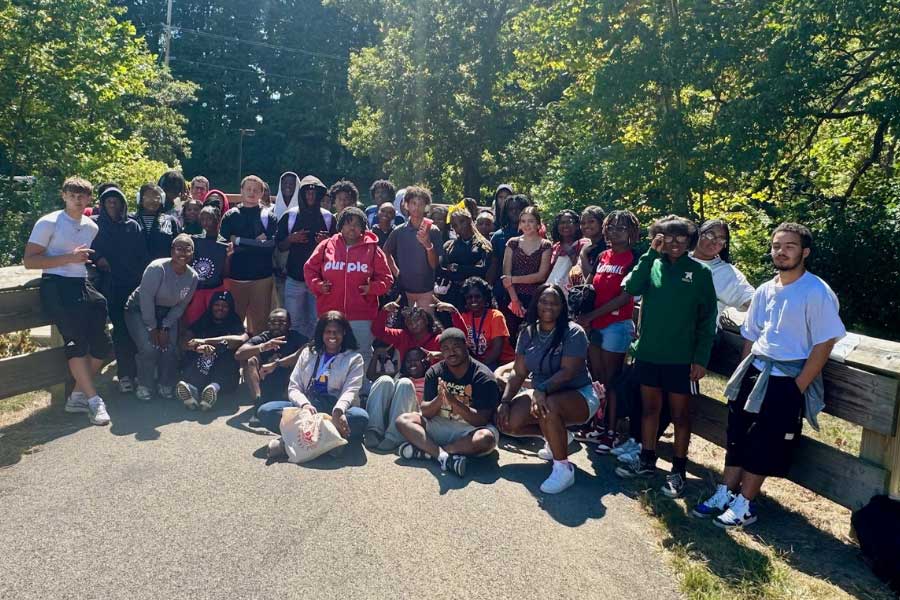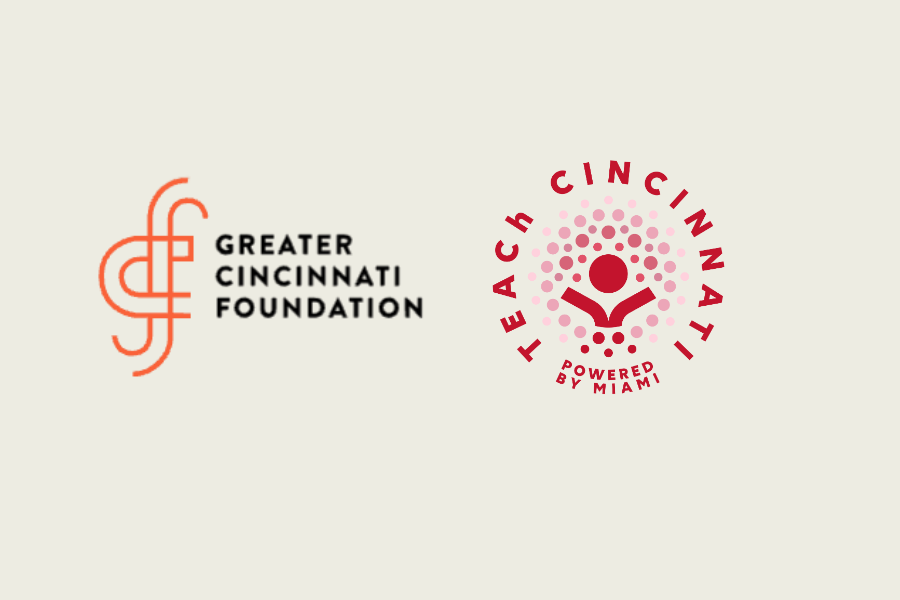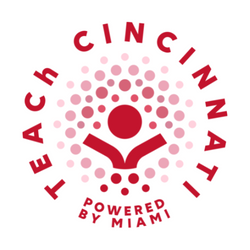Founded as MU TEACh, the TEACh Cincinnati program began at Aiken High School with a simple premise: teachers are more likely to serve in districts similar to the ones they grew up in, and they are better equipped to understand the challenges faced by students in those districts. This recruit-retain-retire model aims to prepare diverse, effective, and long-term educators who are rooted in their communities through the following stages:
- Recruitment starts as early as middle school and continues through high school, with teaching-based affinity groups and mentoring from Miami teacher preparation faculty and staff to expose students to the possibilities of careers in education.
- High school juniors and seniors engage in college prep, take college courses through the College Credit Plus (CCP), and participate in campus visits.
- Students gain admission to Miami’s teacher education programs, supported by financial, academic, and social resources to enhance both access and retention.
- Students may participate in Miami’s award-winning Urban Cohort program, specifically preparing them for the challenges and opportunities of urban teaching environments and community engagement.
- Students complete their student teaching in Cincinnati Public Schools.
- Graduates receive preferred hiring status within Cincinnati Public Schools.
- Early-career teachers receive ongoing mentoring and support through Miami’s Early Career Teacher Community of Practice and have an opportunity to enroll in a Miami graduate program, helping them not only persist but thrive.
- Early-career teachers grow into established, high-impact educators, persisting until retirement and creating lasting legacies as leaders, mentors, and community anchors.
In Fall 2022, four students from Aiken High School were among seven total Cincinnati Public Schools (CPS) students entering Miami University’s teacher education programs, marking a key milestone for a groundbreaking initiative that began in 2018. Since then, two additional cohorts of students have followed, bringing the total number of students at Miami in Fall 2024 to 23. We are excited that another 12 students will be entering Miami in Fall 2025, bringing the total group across four cohorts to 35. These students represent schools across Cincinnati, including Aiken, Oyler, School of Creative and Performing Arts, Spencer, Taft, Walnut Hills, and Withrow, with additional students coming from Cincinnati Job Corps, Mt. Healthy, and in the future, Shroder. To date, the TEACh Cincinnati program has been able to support students through scholarships and grants that meet their demonstrated financial need as indicated on the FAFSA.
In 2023, Miami also began partnering with Cincinnati State and Literacy Lab Fellowship to strengthen the already robust pipeline of high school students involved in the program. With over 350 students participating, many are learning about careers in education and recognizing the potential of pursuing post-secondary education with the possibility of becoming a teacher. The TEACh Cincinnati program can be visualized as a funnel, initially engaging as many students as possible and exposing them to the possibilities of careers in teaching. As the funnel narrows, students are provided with subsequent experiences and engagement opportunities in order to capture an incoming class that is both interested and can be supported by the current resource infrastructure (e.g., personnel and scholarships).
The success of this model led to an Ohio Department of Higher Education grant focused on helping to alleviate the teacher shortage. With additional funding from the Greater Cincinnati Foundation, HCS Foundation, Accelerate Great Schools, Martha Holden Jennings Foundation, the Haile Foundation, and the U.S. Department of Education, with further investments from both Miami University and Cincinnati Public Schools, the program aims to expand across all interested Cincinnati high schools in the coming years. The goal is to create a continuous pipeline, graduating a significant number of new, homegrown teachers over the next decade.
The true promise of this initiative lies not only in Miami’s impact but in the scalability of the model itself. It can be expanded across Cincinnati schools and to the nine higher education institutions graduating educators within 50 miles of Cincinnati.





